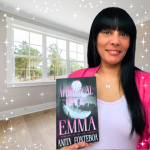You wrote a book. Now you need an editor. Before you rush to hire someone, here’s what you need to know. These are the things I wish someone had told me when I first started.
1. Know what kind of book you have
When I started, I just had an idea and began writing. I ended up with 20,000 words and was thrilled because I thought I had a novel. I googled editors, found Reedsy, and picked one based on good reviews. What I did not know back then was that 20,000 words is a novella, not a full novel.
Before you hire anyone, get clear on:
- What type of book are you writing, novella, novel, nonfiction, or short story?
- How many words do you plan to finish?
- What are your editing goals: developmental editing, line editing, or proofreading?
You can ask the editor directly to highlight what needs to be fixed in the comments or notes to receive clear feedback. Be specific and direct because it saves time and avoids confusion.
2. Know your genre
Before you even search for an editor, figure out what kind of book you have written. Is it fantasy? romance? mystery? nonfiction? Some editors specialize in a particular genre or type, and matching your editor to your genre is crucial. A romance editor will not approach a fantasy manuscript the same way, and vice versa.
3. Understand the types of editing
There are various types of editing, each playing a distinct role.
- Developmental editing looks at the big picture: plot, pacing, character arcs, and structure.
- Line editing focuses on tone, style, flow, and sentence structure.
- Copy editing focuses on sentence-level clarity, grammar, and word choice.
- Proofreading catches the final typos, spelling mistakes, and formatting errors.
What you choose depends on your budget and where you are in the process. If you are just starting out and you do not have beta readers, a developmental editor can help you figure out what you are really writing, how your style fits the genre, and how to shape the story.
Remember that you pay for what you get. If you skimp on it now, you may regret it later. One of my personal regrets was not doing enough homework at the start.
4. Understand how pricing works
Editors usually charge by the word, and the cost adds up quickly. Rates can range from three cents to five cents per word, depending on experience. Keep in mind that nonfiction often costs more to edit than fiction, because it can require fact-checking.
Example:
20,000 words at $0.05 per word equals $1,000.
You can search the editor’s website to find their specific fees, or check Reedsy for the average costs of professional editing. Knowing this upfront helps you plan your budget and avoid sticker shock when the quote arrives.
5. Research the editor carefully
Once you have names in mind, do your research.
- Check their website.
- Look at the authors they have worked with.
- Reach out to those authors and ask for honest opinions,
- Ensure their editing style aligns with your needs.
You can also check groups like the Author’s Guild, the Alliance of Independent Authors, Reedsy, or Facebook writers groups because they often have vetted editor lists or trusted recommendations you can browse. Within Facebook groups, you can ask other authors directly for editor recommendations or use the group search function to look up editors. You will find a whole slew of suggestions, feedback, and names to explore.
For spotting scams, inflated claims, or shady editing services, visit https://writerbeware.blog. It’s an excellent resource run by publishing-industry veterans, dedicated to helping writers avoid fraud and bad deals.
Trust your intuition. Examine their online presence, observe how they communicate, and ensure you feel comfortable with the fit. Just because someone edited sci-fi for Stephen King does not mean they know how to edit a romance manuscript. Genres are specific, and not every editor specializes in them. Many have specialties where they excel.
Final Tip
Hiring an editor is a significant step, and it’s the light at the end of the tunnel. You want your manuscript in top shape if you are planning to query a literary agent or submit to a small or midsize publisher.
Your book will likely undergo additional edits once it is accepted. A literary agent may also ask for changes. However, investing in yourself and your manuscript from the onset is always a wise decision.
What do you wish you had known before hiring an editor? Share your tips or experiences in the comments, or reach out to me on social media. Let us help each other make our books the best they can be.









